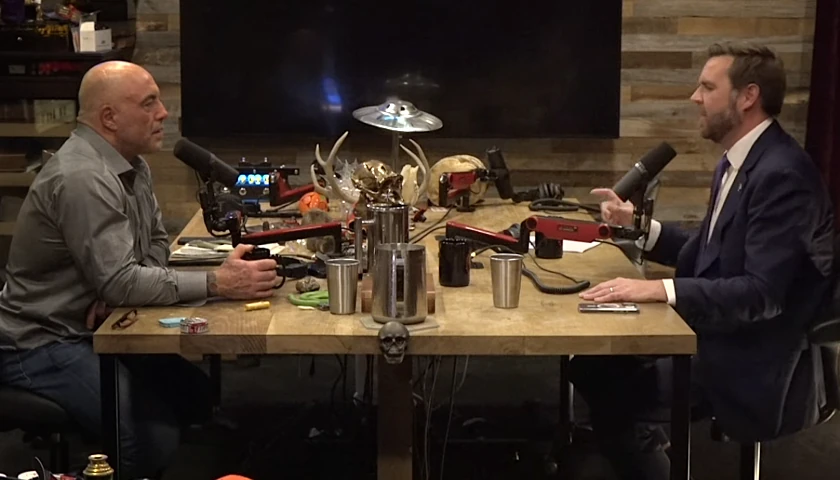by Zachary Marschall
Ideological litmus tests have no place in higher education. They weaponize loyalty and contradict the university’s purpose of fostering academic inquiry and informed debates. Scholars cannot pursue truth or progress if they are denied academic jobs based on their devotion to a specific political ideology or philosophy.
I applaud states like Florida, Alabama, Wyoming, Tennessee, and Texas that have banned varied Diversity, Equity, and Inclusion (DEI) requirements that mandate loyalty to its agenda. But we need to go further. Congress can deny federal funding to universities that impose DEI on faculty, administrators, and staff. Conservative lawmakers are already trying to “dismantle” DEI in the federal government and others are currently weighing defunding universities over Title VI violations. They should extend defunding to universities that require DEI.
DEI litmus tests must go because they do not serve students. In reality, they are about power. DEI loyalty oaths fortify campus leaders’ power to reduce diversity, equal opportunity, and access initiatives to a set of counterproductive far-left policy prescriptions that ultimately marginalize, limit, and exclude students.
In February, Cornell University emeritus trustee Jon Lindseth blamed the school’s embrace of DEI for the growing “antisemitism and general intolerance” on its campus. And yet, loyalty to the toxic DEI agenda has become pervasive in faculty hiring protocols, as have commitment pledges. A new report by the Cornell Free Speech Alliance claims that the Ivy League university has systematically filled faculty positions based on applicants’ DEI statements.
Cornell is not the only university to demand DEI loyalty, but the problem goes beyond mere numbers. In 2021, the American Enterprise Institute discovered that while 34% of faculty job postings at elite universities mandated DEI statements, 68% of all listings discussed diversity as a core aspect of the position. This large percentage supports the Cornell report’s indications that even when DEI statements are a choice, academics who omit the document are stigmatized in the application process.
But DEI statements are not just for getting a job in academia, they are too often needed for promotion and advancement. In 2022, the American Association of University found that 45.6% of “large” universities — where the most prestigious research takes place — require “DEI criteria in tenure standards.” Tenured professors are at the top of the academic food chain. They sit on curriculum, hiring, and programming committees, and have the greatest access to funding and publication resources.
Those academics that get the top spots get to dictate who is worthy of inclusion or exclusion in the academic job market. A scholar marked unfit might as well be branded with a “Scarlet Letter” confirming his ostracization from higher education. These DEI zealots are the same people teaching the next generation of educators, parents, business leaders, and politicians.
That is why leaders outside of higher education must step in to strip undue power away from ideologically driven administrators and professors. Ideologues and their administrative allies are grafting divisive politics onto their institutions, erroneously marketing their insertions as sutures for past injustices. That is not the purpose or the design of higher education.
The Western university is nearly 1,000 years old and its mission pre-dates liberal democracies, capitalism, socialism, communism, and every other system of government or economics currently being debated by politicians. It exists to help students cultivate their intellectual and moral development. It is its own animal in the West that may examine — but should never reflect — fleeting political trends or sympathies.
When personal growth becomes political, rigor and truth erode from the foundations of higher learning. The DEI campus complex, which inculcates groupthink and replaces scholars with social justice warriors, attests to this intellectual and moral decline. Faculty and students should be encouraged to think and question, not to be complicit in a regime of unquestioning conformity.
As an adjunct professor, I can attest that DEI statements contravene the objectives of higher education. America cannot afford to have the next generation of business, political, and cultural leaders operate according to that immoral logic. Professors should be exposing students to uncomfortable truths and diverse perspectives. This process requires exposure to contradicting ideas that challenge students intellectually.
Ideological purity paves over the debates and discussions that hone students’ critical thinking skills. A campus of like-minded people not only lacks diversity, but it also inhibits students’ abilities to learn from one another.
– – –
Zachary Marschall is editor-in-chief of the Leadership Institute’s Campus Reform and an adjunct assistant professor at the University of Kentucky.









